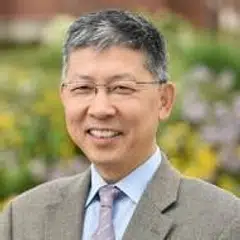
Zhiqun Zhu
Political Scientist
Zhiqun Zhu, PhD, is Professor of Political Science and International Relations at Bucknell University, USA, where he chaired the International Relations Department (2017-2021), served as the inaugural director of the China Institute (2013-2017), and was MacArthur Chair in East Asian politics (2008-2014). He previously taught at University of Bridgeport, Hamilton College, University of South Carolina, and Shanghai International Studies University. In the early 1990s, he was Senior Assistant to Public Affairs Officer at the US Consulate General in Shanghai. Professor Zhu has received many research grants and fellowships including a Fulbright US Scholar award to Australia and a summer research grant from the National Endowment for the Humanities. Dr. Zhu is a member of the National Committee on United States-China Relations and is frequently quoted by international media on Chinese and East Asian affairs.